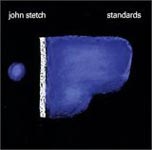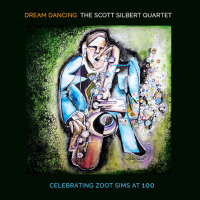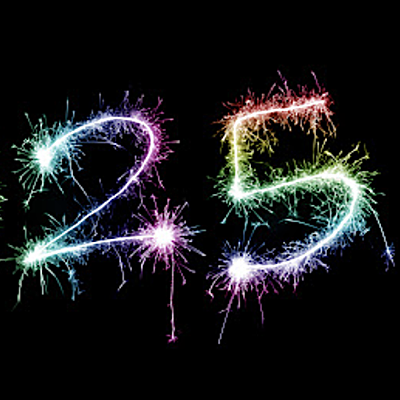Home » Jazz Articles » John Stetch
Jazz Articles about John Stetch
John Stetch: Standards

by Dan McClenaghan
The solo piano can be a tough arena, especially when offering up American Songbook classics. John Stetch's Standards, the pianist's second solo outing and his eighth CD overall, succeeds by taking some unlikely--for solo piano--tunes and getting Zen-deep into them, paring things down to their bare essence, and using quirky rhythms and spare, elegant harmonics.Two of the most interesting tunes are Charlie Parker's “Segment" and “Moose the Mooche," things you don't normally hear in this setting. “Segment" opens ...
Continue ReadingJohn Stetch: Standards

by Jim Santella
John Stetch doesn’t do ordinary.
The pianist’s latest release allows him plenty of elbowroom as he interprets classics from the heyday of modern jazz. Stetch confesses, “Some of these tunes are like etudes or exercises.”
The challenge of making familiar pieces such as “Embraceable You” and “Stella By Starlight” sound new is met head on. Stetch employs a few rather unseasoned tricks. The seldom-heard leftmost bass notes of the piano lend a percussive force. Unusual ...
Continue ReadingJohn Stetch: Standards

by AAJ Staff
For pianist John Stetch, Standards is just as much about reinterpreting as reinventing. Quite literally. His second solo piano recording after last year's totally unexpected Ukranianism takes on the full range of the jazz canon, from the relatively obscure (Charlie Parker's “Segment") to the downright promiscuous ("Stella By Starlight"). He seems to delight in plying a totally different angle with each piece, as if he's afraid he might grow stale if he got stuck in any kind of rut. That ...
Continue ReadingJohn Stetch: Ukrainianism

by AAJ Staff
From the title and the extensive liner notes, there's no doubt that pianist John Stetch has devoted this solo record to his roots in Ukrainian folk music. (And it's not the first time he's done this.) It's tempting to go into detail about the specific origins and hidden meanings of the various tracks, but that approach really sells Stetch's vision short. On Ukrainianism, he takes simple melodies and adopts them as his own, interpreting them through a complex and ever-evolving ...
Continue ReadingJohn Stetch: Heavens of a Hundred Days

by David Adler
Pianist John Stetch enlists tenor saxophonist Bill McHenry, bassist Ben Street, and drummer Jeff Ballard on this contemplative yet stimulating release. Each track is paired in the liner notes with a quotation or reference that served as Stetch's inspiration. These diverse influences range from Rilke, Kandinsky, and singer/songwriter Mike Rud to political theorist Benjamin Barber. Stetch's intellectual nature comes across in the music without being stultifying or overly serious, making this an album of exceptional candor and expressiveness.“Heavens ...
Continue ReadingJohn Stetch: Heavens Of A Hundred Days

by Jim Santella
Pianist John Stetch has assembled an eclectic, modern mainstream program for his 6th album as leader. The pianist’s improvising quartet weaves distinct impressions around various themes. From the ancient Japanese harmony of Stetch’s “Urakawa” to his Erik Satie tinged “Rondeau,” the pianist/composer swings with an intellectual acumen. Standards receive a smooth texture with a vibrant dynamic touch. Stetch excites the senses without turning up the heat. An audio sample of the album’s “Autumn in New York” is available from the ...
Continue ReadingJohn Stetch: Heavens of a Hundred Days

by AAJ Staff
If New York pianist John Stetch has his way about it, we'll never find ourselves in a McWorld. Stetch approaches each tune on Heavens of a Hundred Days from a slightly different angle, yielding a record that is anything but uniform or prepackaged. The tunes on Heavens include solo, duo, trio, and quartet arrangements of Stetch's original compositions plus a couple of standards. The liner notes assert a distinct philosophical concept underlying every tune, ranging from Isaiah to Rilke to ...
Continue Reading
















